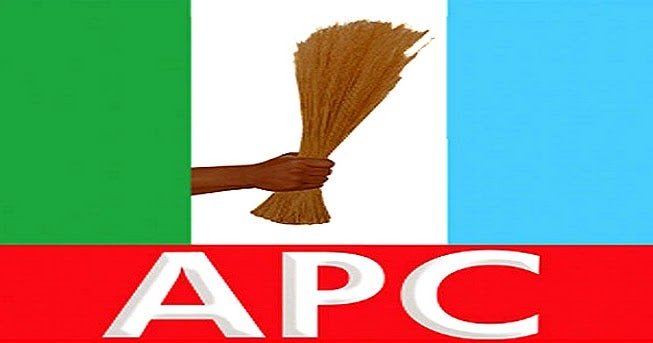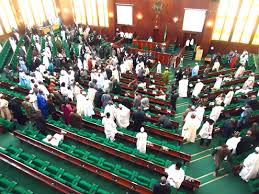Africa to be declared polio-free after decades of work-WHO

Africa is expected to be declared free from wild polio, after decades of work by a coalition of international health bodies, national and local governments, community volunteers and survivors.
“Thanks to the relentless efforts by governments, donors, frontline health workers and communities, up to 1.8 million children have been saved from the crippling life-long paralysis,” the WHO said in a statement.
The official announcement is due at 1500 GMT in a videoconference with WHO director-general Tedros Adhanom Ghebreyesus and key figures including philanthropist and Microsoft founder Bill Gates.
Four years after the last recorded cases of wild polio in northern Nigeria, the Africa Regional Certification Commission (ARCC) is expected to certify that the continent is free of the virus, which can cause irreversible paralysis and in some cases death.
The achievement is the result of a campaign to vaccinate and monitor children in Borno State, the final front of polio eradication efforts on the continent, and the heart of the jihadist insurgency in Nigeria.
READ ALSO WHO finally declares Nigeria Polio free
“It’s been a momentous, massive undertaking, with amazing persistence and perseverance, coming in the face of moments when we thought we were just about there, then we’d have a reversal,” Dr Matshidiso Moeti, the World Health Organization (WHO) regional director for Africa, said.
The WHO, she said, had played a central coordinating role within the Global Polio Eradication Initiative – a coalition of national governments and local leaders, working with Unicef, the Bill and Melinda Gates Foundation, Rotary International, the US Centers for Disease Control and Prevention – and with millions of community volunteers across the continent.
Improved surveillance, tackling violent levels of vaccine scepticism that fuelled deadly attacks on health workers and the inclusion of polio survivors within eradication teams were key factors in wiping out the virus, said Moeti.
“I would really like to pay tribute to polio survivors, who have joined in the fight, who have helped in sharing their experiences of disability with polio and the impact this has had on their lives,” she said.
In 1996, 75,000 children in Africa were paralysed by polio.
The fight now is to improve the lives of survivors, said Moeti.
“This moment underlines the importance of paying attention and better prioritising the needs of people with disabilities in the African region. Health is not just the absence of a disease that can kill, it is a complete sense of wellbeing,” she said.
READ ALSO Jubilation as Nigeria set to receive polio-free certification on August 25
Musbahu Lawan Didi, co-founder of Nigeria’s Association of Polio Survivors, campaigning for the rights of those with polio , said: “It is incredible that what we have started years ago has built these results. As polio survivors we are the happiest and believe we’ll be the last polio survivors in the country.”
But he added: “Ninety percent of polio survivors in Nigeria live in poverty. Many of us are trawling the streets to survive, begging. It should not be so.”
Dr Rose Leke, chair of the ARCC, an independent body set up by the WHO, said the declaration followed exhaustive assessments of surveillance systems in 47 African countries to ensure no cases were missed
Despite the progress, however, 16 countries in the region are currently experiencing small outbreaks of vaccine-derived polio,which can occur among underimmunised communities.
Efforts to eradicate wild polio globally were spurred by the formation of the Global Polio Eradication Initiative in 1988.
Since then, cases of wild polio have fallen dramatically from an estimated 350,000 cases to 33 reported cases in 2018. In Africa, a campaign by leaders from the continent, led by Nelson Mandela, helped drive progress.
But the insurgency in northern Nigeria made the disease hard to shift. In 2013, nine women who were vaccinating children in Kano were shot dead by gunmen suspected of belonging to Boko Haram.
At least 67 frontline health workers involved in polio eradication efforts in the region have been killed, with others attacked and abducted. Several violent incidentswere spurred by a rejection of vaccinations by local communities, said Dr Tunji Funsho, head of Rotary International’s Nigeria polio committee.
In July 2003, five states in northern Nigerian suspended the use of polio vaccinations for at least a year. Annual cases in Nigeria then soared, with Nigerian strains of the virus spreading across Africa.
The bitter legacy of controversial medical trials for other diseases in northern Nigeria also fuelled opposition to vaccinations.
But a big effort to appeal to political, community and religious leaders, along with public campaigns and town hall meetings began a gradual turnaround.
Daily Times gathered that a statement by the WHO on 19 June, 2020, stated that the independent Africa Regional Certification Commission (ARCC), responsible for certifying the eradication of wild poliovirus in the World Health Organization (WHO) African Region, is set to make its final decision about the region’s wild poliovirus status in August 2020.







